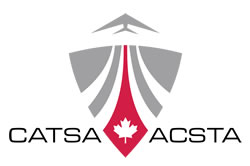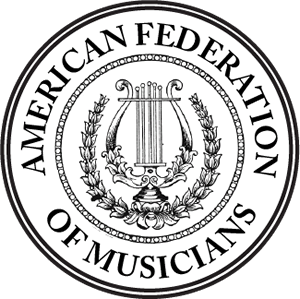December 20, 2020 CERB Update
Artist and Cultural Worker Associations, Unions and Guilds met with Government to discuss CERB Eligibility Issues
Associations, unions and guilds (“associations”) representing over 75,000 artists and cultural workers from across Canada met virtually on December 17, 2020, with MP Julie Dabrusin (Toronto-Danforth), Parliamentary Secretary to the Minister of Canadian Heritage, Matthew Gray, Policy Advisor to the Minister of National Revenue, and other representatives from the Department of Canadian Heritage and the Department of National Revenue. At issue, self-employed artists’ eligibility for the Canada Emergency Response Benefit (CERB) and the recent letter over 400,000 Canadians received from Canada Revenue Agency (CRA).
“We appreciate the time the government has taken to meet with us, share insights and answer our questions, but we still do not have general agreement on the eligibility of $5,000 income as gross or net of related expenses, and we would like the government to agree to gross earnings,” said Theresa Tova, ACTRA National Treasurer and ACTRA Toronto President on behalf of the associations. “Our members applied in good faith and we would like an official statement put out by government that eligibility will be based on gross income before cultural workers have to endure a difficult holiday season.
“The fact is many of the self-employed gig workers who have received these letters are among the most financially distressed people in our country,” Tova continued. “On average, artists’ annual earnings are between $12,000-$16,000 gross, and during the pandemic, when their secondary service jobs also disappeared, they continued to have significant expenses like any small businesses.”
The associations were seeking clarity and a change of CRA policy regarding CERB eligibility expressed in the CRA letter. The associations believe the published CERB eligibility requirement to show an income threshold was gross self-employment income, not net of expenses. While the meeting did not result in a commitment from the Government to change their policy or provide a clarifying public statement, a number of clarifications about the CRA letter were provided during the meeting.
According to Government officials at the meeting:
- Canadians should know that the CRA letter is not a determination of eligibility, rather it was an early warning sign that the government did not yet have enough information to confirm their eligibility for CERB.
- The government always said that recipients’ eligibility would be verified after the program’s conclusion. CRA is at the beginning of this process, which will unfold over the coming months.
- Recipients who received the CRA letter may be eligible for the CERB, and in fact 2020 tax return information will help determine eligibility in many cases, but the CRA has not yet received that information.
- The CRA issued the letters to allow recipients an opportunity to return amounts in case they find themselves ineligible for one or more CERB periods for which they received the benefit.
- The timing of the letter and the December 31, 2020, target for returning funds were chosen to prevent impacts on 2020 tax returns and on other benefits such as the CCB or GST/HST tax credit. It is not a repayment deadline.
- There will be no interest or penalties assessed as a result of a CERB recipient not repaying ineligible amounts by December 31, 2020.
The associations and Government left the meeting with a pledge to continue to work together to provide additional clarification for communities. MP Dabrusin invited Canadians to contact their Member of Parliament for additional information on this or any other potential government benefit or program to see them through the pandemic.
-30-
A complete list of attendees at the meeting is as follows:
From Government:
- Julie Dabrusin, Member of Parliament for Toronto-Danforth, Parliamentary Secretary to the Minister of Canadian Heritage
- Irene Cheung, Policy Advisor, Office of the Minister of Canadian Heritage
- Matthew Gray, Policy Advisor, Office of the Minister of National Revenu
- Brendan Parsley, Parliamentary Secretary Assistant, Office of the Minister of Canadian Heritage
From Artist and Cultural Worker Associations, Unions and Guilds:
- Keith Martin Gordey, ACTRA National Vice-President and UBCP/ACTRA President
- Theresa Tova, ACTRA National Treasurer and ACTRA Toronto President
Lisa Blanchette, Director of Public Affairs and Communications, ACTRA National - Renuka Bauri, Canadian Arts Coalition
- Steven Sparling, Associate Executive Director, Canadian Actors’ Equity Association
- Sasha Sobrino, General Manager, CAPIC National
- April Britski, National Executive Director, CARFAC
- Jason Samilski, Executive Director, CARFAC Ontario
- Maegen Black, Director, Canadian Crafts Federation
- Kathleen Morris, Chair of Advocacy Committee, Canadian Crafts Federation
- Aviva Fleising, Interim Managing Director, Canadian Dance Assembly
- Alan Willaert, AFM Vice-President from Canada, Canadian Federation of Musicians
- Liana White, Executive Director, Canadian Federation of Musicians
- Ken MacKenzie, President, IATSE Local ADC 659
- Emmanuel Madan, Director, Independent Media Arts Alliance
- Michael Adam Murray, Executive Director, Toronto Musicians’ Association, CFM Local 149
- Neal McDougall, Director of Policy, Writers Guild of Canada
- John Degen, Executive Director, The Writers’ Union of Canada






